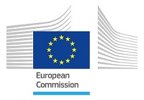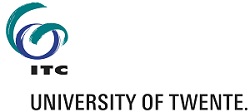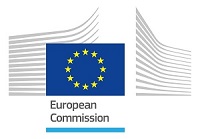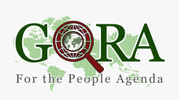Call for the first meeting of the geo human planet initiative
Hosted by the Faculty of Geo-Information Science and Earth Observation of the University of Twente, Enschede, Netherlands
12-15 September 2017
The Group on Earth Observations (GEO) is a voluntary partnership of governments and organizations that envisions “a future wherein decisions and actions for the benefit of humankind are informed by coordinated, comprehensive and sustained Earth observations and information[i]”.
The Human Planet is a new initiative in the GEO 2017-2019 work programme supporting the GEO Strategic Plan 2016-2025. The Human Planet aims to support novel evidence-based assessment of the human presence on the planet Earth. The Human Planet leverages on advances of Earth Observation technologies and geo-spatial data analytics for improving the global awareness on the spatial patterns and processes of the today’s urbanizing world[ii]. New open, inclusive and consistent data are needed for assessing humanity’s impact on the planet, access to resources, and exposure to risk. New knowledge is needed in order to translate these new data into actionable information to support decision making by governments, organizations and individuals.
Data scientists, decision makers, and professionals compose the Human Planet partnership. As of February 2016, the partner contributors list includes more than 150 individuals belonging to 85 different organizations including academies, international stakeholders, governmental bodies and private firms. The partners of the Human Planet are committed to develop a new generation of measurements and information products that provide new scientific evidence and a comprehensive understanding of the human presence on the Planet in support of global policy processes with agreed, actionable and goal-driven metrics. The Human Planet initiative aims to support the post-2015 international frameworks: the UN Third Conference on Housing and Sustainable Urban Development (Habitat III, 2016) , the post-2015 Framework on Sustainable Development Goals (SDGs), the UN Framework Convention on Climate Change (UNFCCC), and the UNISDR’s Sendai Framework for Disaster Risk Reduction 2015-2030 . Post-2015 international frameworks are accompanied by targets that are further elaborated and monitored through indicators that focus on measurable outcomes. These indicators are action oriented, global in nature and universally applicable. The Human Planet initiative operates in an open and free data access policy, with the mission to maximize the access to data and statistics to ensure that no one is left behind and that the information gaps are filled.
The Human Planet partnership supports the production of the “Atlas of the Human Planet”, a yearly periodic release of the main findings collected and discussed within the partnership and presented in international forums dedicated to the monitoring of post-2015 frameworks. The Atlas of the Human Planet 2016 was launched at the Habitat III conference (Quito Ecuador, 2016)[iii]. The edition 2017 of the Atlas will be presented at the Global Platform for Disaster Risk Reduction (Cancun Mexico 2017). The 2018 edition of the Atlas will be presented at the World Urban Forum 9 (Kuala Lumpur, Malaysia).
The 2017 Human Planet Forum has three main objectives:
- to showcase the work done so far,
- to seek additional support and enlarge the partnership, and
- to consolidate the governance and the future action plan of the partnership.
The forum is open to established and potential partners interested to engage with the GEO Human Planet.
Local Organizing Committee
- Richard Sliuzas
- Alfred Stein
- Luc Boerboom
- Monika Kuffer
- Saskia Tempelman
University of Twente
Faculty of Geo-Information Science and Earth Observation (ITC)
www.itc.nl
HPI initiative
The Human Planet initiative is structured in one steering committee and several expert groups organized by thematic areas. Each expert group supports the main actions of the initiative from a specific thematic point of view. All the partners have access to pre-release data and tools in order to run their own early testing activities before the public releases.
The experts groups of the thematic areas provide support to the partnership for advice in selection of the input sources, for design and implementation of specific indicators and review of the results and for advice in delivering the shared findings as in the periodic releases of the “Atlas of the Human Planet”. Each expert group has one point of contact or chair, who facilitates the exchanges between the Human Planet and the experts of the specific thematic area. The point of contact can also represent the Human Planet via contacts with external communities of practice and experts to foster dedicated fluxes of exchanges with the Human Planet partnership.
The steering committee includes representatives of institutions involved in the post-2015 frameworks, key experts of the Human Planet invited by members of the steering committee, and the chairs of the Human Planet expert groups. The steering committee will review the Atlas contents and will vote the key messages delivered in the Human Planet outreach activities: typically, the yearly releases of the “Atlas of the Human Planet”.
Steering committee
The preliminary list of partners included in the Human Planet steering committee is reported below.
ALAN BELWARD | European Commission, JRC, Copernicus Global Land Services |
ANDREW J TATEM | University of Southampton |
BENJAMIN BECHTEL | Univ. of Hamburg, Center for Earth System Research and Sustainability |
DEBORAH BALK | City University of New York, Institute for Demographic Research |
BOB CHEN | Center for International Earth Science Information Network (CIESIN) |
LEWIS DIJKSTRA | European Commission, DG Regional Development (REGIO) |
EDUARDO LÓPEZ MORENO | UN HABITAT - Research and Capacity Development |
ELEN HAMILTON | The World Bank (WB) |
EUGENIE L. BIRCH | University of Pennsylvania |
GORA MBOUP | Global Observatory linking Research to Action (GORA) |
MARK R. MONTGOMERY | Population Council |
MARTINO PESARESI | European Commission, JRC, GHSL |
PAUL C. SUTTON | University of Denver |
RICHARD SLIUZAS | University of Twente |
SHAROLYN ANDERSON | University of South Australia |
STEFFEN FRITZ | International Institute for Applied System Analysis (IIASA) |
Expert groups
The preliminary list of the Human Planet expert groups is reported below. In bold the established groups, in grey the new groups currently under discussion.
- Global harmonized definition of cities and settlements
Point of Contact from the Economic Analysis Unit at European Commission DG for Regional and Urban Policy (L.Dijkstra) - New global settlement data and civil society
Point of Contact from the Pennsylvania University, Penn Institute for Urban Research - Penn IUR (G. Birch) - Global Settlements in Disaster Risk Reduction
Point of Contact from the Global Partnership on Space Technology Applications for Disaster Risk Reduction GP-STAR (tbd) - Global Urban Climate and Mitigation Planning
Point of Contact from the World Urban Database and Access Portal Tools (WUDAPT) (G. Mills) - Global updated and historical baseline data on population and built-up areas
Point of contact from the JRC Global Human Settlement Layer (T.Kemper) - Global high resolution age-structured population maps 2000 - 2020
Point of contact from the Univ. of Southampton, WorldPop (A.J.Tatem) - Global Settlements, Infrastructure, and Population Data Intercomparison
Point of contact from the Columbia Univ., Center for International Earth Science Information Network (B.Chen) - Global historical baseline on human settlements and surface water dynamics
Point of Contact from the JRC Global Surface Water (A. Belward) - Global future population grids including demography and migration
Point of Contact from the CUNY Institute for Demographic Research. (D.Balk) - Global urban metabolism
Point of Contact from the University of Denver Department of Geography & the Environment (P. Sutton) - Urbanization dynamics in China and the “one belt one road” region
Point of Contact from the Institute of Remote Sensing and Digital Earth, Chinese Academy of Sciences (LinLin Lu) - Capacity building and traineeships
Point of Contact from the ITC Faculty of Geo-Information Science and Earth Observation of the University of Twente (R. Sliuzas)
Programme Day 1
Afternoon session 14.00 - 15.30 hrs & 16.00 - 17.30 hrs
Format: short presentations.
Objective: open the discussion and show the achievements of the partnership
14.00 - 15.30 hrs: Welcome and openings
- Introduction by Dr Richard Sliuzas
- Opening and worlds of welcome by Prof. Thom Palstra, Rector of the University of Twente
- Opening and words of welcome by Prof. Freek van der Meer, on behalf of the Faculty Geo-Information Science and Earth Observation (ITC, University of Twente
- Robert Chen, on behalf of William Sonntag, on behalf of Group on Earth Observation
- Charlina Vitcheva, Deputy Director General of the European Commission, Joint Research Centre and
- Joan Clos, Executive Director UN-HABITAT
- Robert Ndugwa, Head Global Urban Observatory Unit | Research and Capacity Development Branch, United Nations Human Settlements Programme (presentation)
15.30 - 16.30 hrs: Introduction and status
- Principles of the partnership, main achievements, and objectives of the meeting (Martino Pesaresi, EC JRC) (presentation)
- Global updated and historical baseline data on population and built-up areas (Sergio Freire, JRC Global Human Settlement Layer) (presentation)
- Global high resolution age-structured population maps 2000-2020 (Alessandro Sorichetta, University of Southampton, WorldPop) (presentation)
- Global Settlements, Infrastructure, and Population Data Intercomparison (Bob Chen, Columbia University, Center for International Earth Science Information Network) (presentation)
16.45 - 17.30 hrs: Sketching activities
- Atlas of the Human Planet releases 2016, 2017, plans for 2018, 2019. (Aneta Florczyk, EC JRC GHSL) (presentation)
- Proposed new expert groups list and contact name/face (Martino Pesaresi, EC JRC)
- Introduction to the "world café'" session of the day after (Martino Pesaresi, EC JRC)
Dinner in Bistro Het Koetshuis
Programme day 2
Morning session
Showcases, new data, new activities, new partners
9.00-10.30 hrs: Partner showcase session 1
- Global harmonized definition of cities and settlements (Lewis Dijkstra, Economic Analysis Unit at European Commission Directorate General for Regional and Urban Policy) (presentation)
- New global settlement data and civil society (Eugenie Birch, co-director, Pennsylvania University, Institute for Urban Research; chair, World Urban Campaign; president, Habitat3 General Assembly of Partners) (presentation)
- Capacity building and traineeship on new global settlement data (Richard Sliuzas, ITC Faculty of Geo-Information Science and Earth Observation, University of Twente; Vince Seaman Deputy Director, Data & Analytics, Global Development, Bill & Melinda Gates foundation) (presentation)
- Global Urban Climate and Mitigation Planning, (Chao Ren, School of Architecture, The Chinese University of Hong Kong, the World Urban Database and Access Portal Tools WUDAPT) (presentation)
- Global Urban Footprint Suite (GUF+) and Urban Thematic Exploitation Platform (Thomas Esch, Team Urban Areas and Land Management, German Aerospace Center - DLR) (presentation)
Coffee break
11.00-12.30 hrs: Partner showcase session 2
- Towards understanding human settlement growth in South Africa ( Nale Mudau, Research and Applications Development, South African National Space Agency (SANSA) (presentation)
- Global future population grids, (Deborah Balk, associate director, City University of New York, Institute for Demographic Research) (presentation)
- Global urban metabolism, (Paul Sutton, University of Denver Department of Geography & the Environment) (presentation)
- Global slum analysis achievement and challenges (Monika Kuffer & Richard Sliuzas, ITC Faculty of Geo-Information Science and Earth Observation, University of Twente) (presentation)
- Urbanization dynamics in China and the Belt and Road, (LinLin Lu , Institute of Remote Sensing and Digital Earth, Chinese Academy of Sciences) (presentation)
Lunch 12.30 - 13.30 hrs
Afternoon session
13.30 - 14.30 hrs: Ignite talks
Sequence of ignite talks from the representatives of the Expert Groups – 5 minutes each. Structure: who we are, what we plan to do, why you should join the efforts, who is the contact person.
- Global harmonized definition of cities and settlements
– Point of Contact from the Economic Analysis Unit at European Commission DG for Regional and Urban Policy (Lewis Dijkstra) - New global settlement data and civil society
– Point of Contact from the Pennsylvania University, Penn Institute for Urban Research - Penn IUR (Eugenie Birch) - Global Settlements in Disaster Risk Reduction
– Point of Contact from the Global Partnership on Space Technology Applications for Disaster Risk Reduction GP-STAR (Joachim Post) - Global Urban Climate and Mitigation Planning
– Point of Contact from the World Urban Database and Access Portal Tools (WUDAPT) (Gerald Mills) - Global updated and historical baseline data on population and built-up areas
– Point of contact from the JRC Global Human Settlement Layer (Thomas Kemper) - Global high resolution age-structured population maps 2000-2020
– Point of contact from the Univ. of Southampton, WorldPop (Alessandro Sorichetta) - Global Settlements, Infrastructure, and Population Data Intercomparison
– Point of contact from the Columbia Univ., Center for International Earth Science Information Network (Bob Chen) - Building a framework for accuracy assessment of global settlement layers (Stefan Leyk)
- Global future population grids including demography and migration
– Point of Contact from the CUNY Institute for Demographic Research. (Deborah.Balk) - Global urban metabolism
– Point of Contact from the University of Denver Department of Geography & the Environment (Paul Sutton) - Urbanization dynamics in China and the Belt and Road
– Point of Contact from the Institute of Remote Sensing and Digital Earth, Chinese Academy of Sciences (LinLin Lu) - Capacity building and traineeships
– Point of Contact from the ITC Faculty of Geo-Information Science and Earth Observation of the University of Twente (Richard Sliuzas)
14.30 - 16.00 hrs: ‘World Café’
‘World Café’ session with separate desks for each Expert Group topic chaired by the group leader to interact with the all interested partners
16.00 - 17.00 hrs: Poster session / Preparation for wrap-up panel
17.00 - 18.00 hrs: Wrap-up panel
Final panel of the chairs reporting about the findings of the expert groups.
Programme day 3
Morning session 3 hours from 9.30 to 12.30 hrs
Objective: Consolidate the steering committee and the action plan 2017-2019
Chair: M. Pesaresi, EC JRC
- Discuss and finalise the steering committee list
- Discuss and finalise the expert group structure including short action plan
- Discussion on the governance and chair rotation mechanisms
- Identification of next meetings and side events
- Closing
Light lunch at own expense (for those who don’t need to rush off immediately)

























